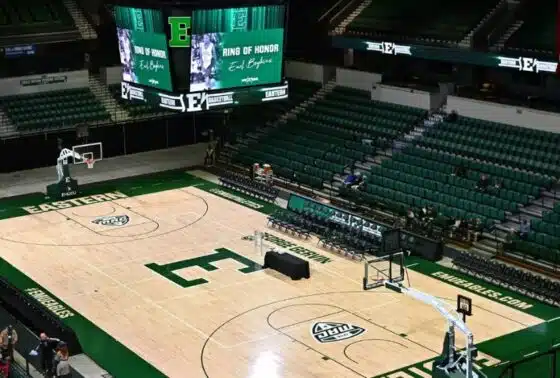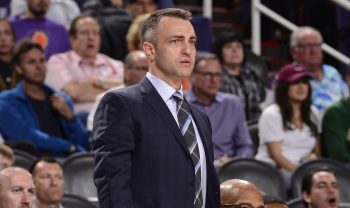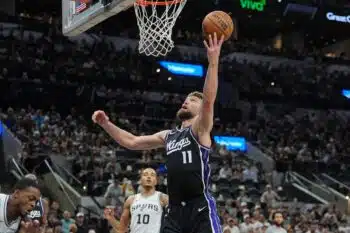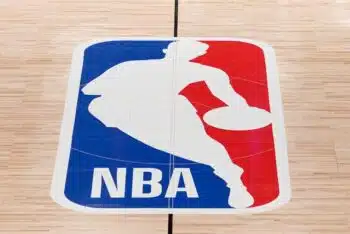College Basketball
Ex-Eastern Michigan Players Refused to Participate in Betting Probe

Three former Eastern Michigan men’s basketball student-athletes did not cooperate with an investigation into potential sports betting violations, according to a decision released by the Division I Committee on Infractions.
Ex-Eastern Michigan Athletes Have No Collegiate Eligibility Left
Although student-athletes refusing to cooperate in a given investigation is a violation of NCAA rules, which could trigger permanent ineligibility, the former basketball players have no collegiate eligibility remaining.
Jalin Billingsley, Da’Sean Nelson, and Jalen Terry, who are no longer with the program, had their phones imaged Jan. 29 by an enforcement vendor, as part of an NCAA investigation triggered by suspicious betting on Eastern Michigan’s Jan. 14 game against Central Michigan.
3 former Eastern Michigan men’s basketball student-athletes did not cooperate with investigation into potential sports betting conduct. https://t.co/GVSrIvycEw
— NCAA News (@NCAA_PR) October 24, 2025
The enforcement staff made numerous requests to interview the student-athletes through their legal counsel after their phones were imaged, per the findings released Friday.
In January 2025, the NCAA enforcement staff received notifications from multiple integrity monitoring services about suspicious first-half betting activity on Eastern Michigan’s Jan. 14 matchup with Central Michigan.
Integrity services subsequently determined that “abnormal betting activity occurred on two previous games that season as well,” the Division I Committee on Infractions noted.
Former Student-Athletes Committed Level I Violations
Per ESPN’s David Purdum, sportsbooks detected suspicious betting on the first halves of two other Eastern Michigan games last season: vs. Wright State (Dec. 21) and at Toledo (Jan. 7).
The enforcement staff then contacted the school and opened a collaborative investigation.
On March 17, the student-athletes’ counsel notified NCAA enforcement staff that the student-athletes would not participate in the process and instructed the vendor to destroy the images.
As a result of the student-athletes’ conduct, the enforcement staff was unable to determine whether sports betting violations occurred. The student-athletes’ failure-to-cooperate violations are Level I, according to the committee.
Level I violations in the NCAA are the most severe rule infractions.
“When individuals choose not to cooperate — particularly when cases involve potential integrity issues — those choices can and will be met with serious consequences including prohibitions on athletically related activities, the loss of eligibility and/or being publicly named in an infractions decision,” the committee said in its decision.
While the Division I Committee on Infractions does not currently assess penalties for student-athletes who violated NCAA rules, student-athletes who are found to have violated NCAA rules are ineligible and can only be reinstated with the assistance of an NCAA school.
The NCAA is investigating 13 athletes at six schools for alleged gambling violations, including the three former Eastern Michigan players.










